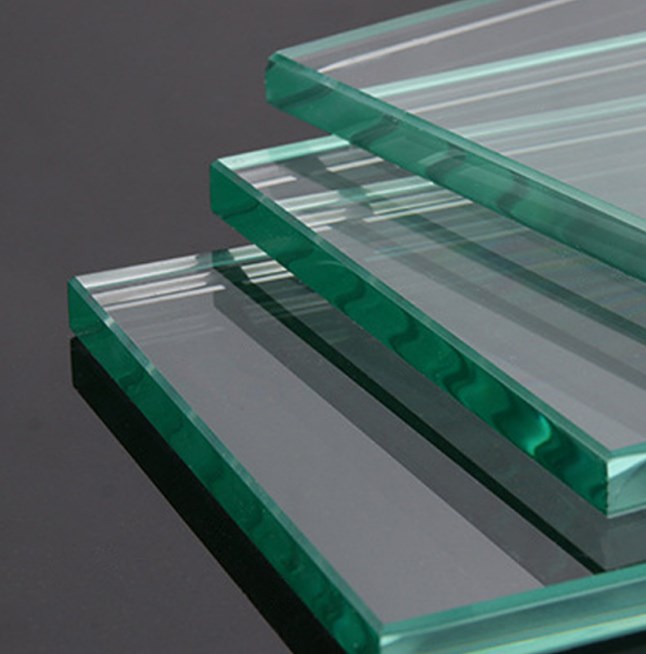A Complete Guide to Tempered Glass: Strength, Safety, and Applications
2025-02-11
Tempered glass is a widely used material known for its durability, safety, and versatility. It plays a crucial role in modern architecture, automotive design, and consumer electronics. Compared to regular glass, tempered glass undergoes a special heating and cooling process that makes it stronger and safer. Whether in windows, smartphone screens, or kitchen appliances, tempered glass offers a reliable and stylish solution for various applications.
What is Tempered Glass?
Tempered glass, also known as toughened glass, is a type of safety glass that has been treated to improve its strength and resistance to impact. The manufacturing process involves heating the glass to a high temperature and then rapidly cooling it. This process creates internal stress, making the glass up to five times stronger than standard glass.
One of the key features of tempered glass is that when it breaks, it shatters into small, dull-edged pieces instead of sharp shards. This reduces the risk of injury, making it a safer option for many applications.
Benefits of Tempered Glass
Tempered glass is chosen for various applications because of its many advantages:
1. High Strength and Durability
Tempered glass is significantly stronger than regular glass. It can withstand higher pressure, making it ideal for high-traffic areas, protective barriers, and everyday use in household and commercial products.
2. Enhanced Safety
Unlike standard glass, which breaks into dangerous shards, tempered glass crumbles into small, harmless pieces when shattered. This makes it a preferred choice for car windows, doors, and public spaces where safety is a priority.
3. Heat and Scratch Resistance
Tempered glass can tolerate high temperatures, making it suitable for kitchen appliances, oven doors, and cookware. It is also highly resistant to scratches, keeping it looking new for a longer period.
4. Better Impact Resistance
Because of its toughened nature, tempered glass can withstand minor impacts without cracking. This makes it an excellent choice for protective screens on smartphones, tablets, and other electronic devices.
5. Versatility in Design
Tempered glass can be customized in various shapes, sizes, and finishes. It is available in clear, frosted, tinted, and patterned designs, making it suitable for both functional and decorative purposes.
Common Applications of Tempered Glass
Due to its strength and safety, tempered glass is used in a wide range of industries:
1. Architecture and Construction
Tempered glass is widely used in modern buildings for windows, glass doors, partitions, and skylights. It provides durability, energy efficiency, and an elegant look for commercial and residential structures.
2. Automotive Industry
Car manufacturers use tempered glass for side and rear windows to enhance passenger safety. In the event of an accident, the glass shatters into small pieces, reducing the risk of severe injuries.
3. Consumer Electronics
Most smartphones, tablets, and laptops feature tempered glass screens for protection against scratches and impacts. Many screen protectors are also made of tempered glass to provide an extra layer of security.
4. Home and Kitchen Appliances
Tempered glass is found in oven doors, stovetops, and refrigerator shelves due to its ability to withstand high temperatures and resist breakage. It is also commonly used in shower doors and glass tabletops for its durability and stylish appearance.
5. Furniture and Interior Design
Many modern furniture pieces, such as glass coffee tables, shelves, and display cabinets, are made with tempered glass. Its sleek and polished look adds a contemporary touch to home and office spaces.
How to Maintain and Care for Tempered Glass
To keep tempered glass in the best condition, follow these simple maintenance tips:
- Clean with a soft cloth and mild detergent: Avoid abrasive cleaners that may scratch the surface.
- Use glass-safe cleaning products: Avoid harsh chemicals that can weaken the glass over time.
- Handle with care: Although tempered glass is strong, sudden impacts on edges can cause it to break.
- Avoid extreme temperature changes: While tempered glass is heat-resistant, rapid temperature shifts can create stress that may lead to breakage.
Conclusion
Tempered glass is an essential material in various industries, offering unmatched strength, safety, and versatility. Whether in buildings, vehicles, electronics, or home appliances, it provides a reliable and stylish solution for everyday use. Its ability to withstand impact, heat, and scratches makes it a preferred choice for both safety and aesthetics. Investing in tempered glass ensures long-lasting performance and protection, making it a valuable addition to any environment.



